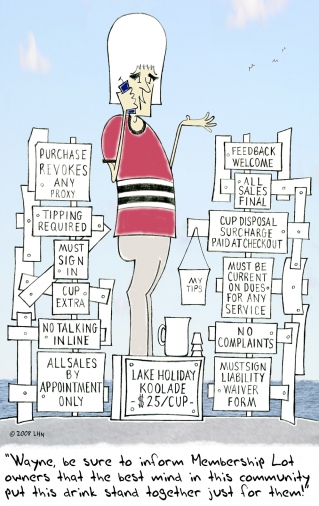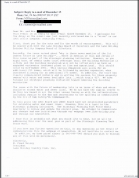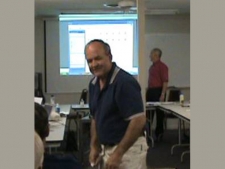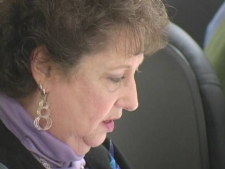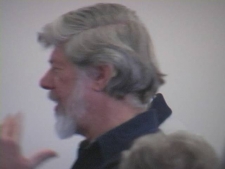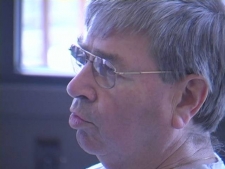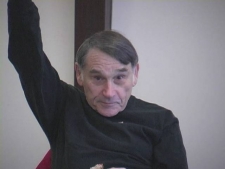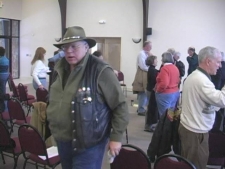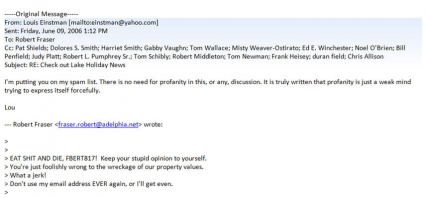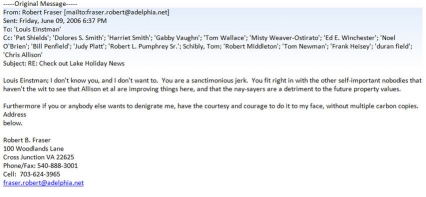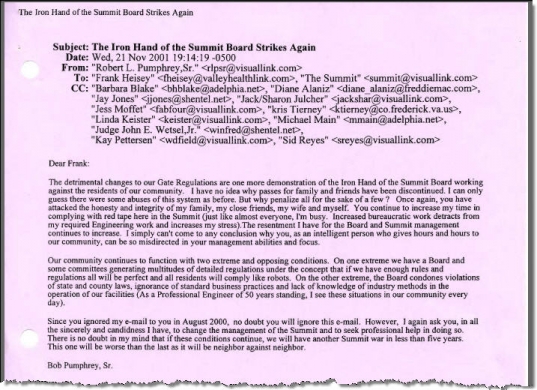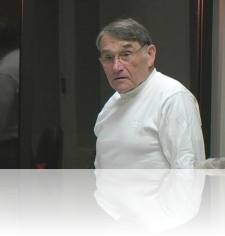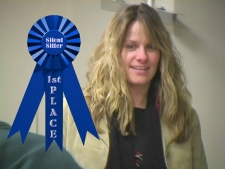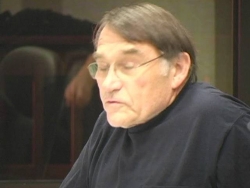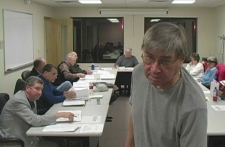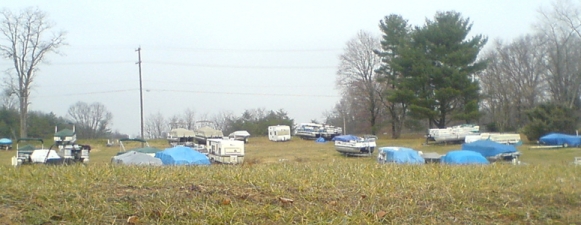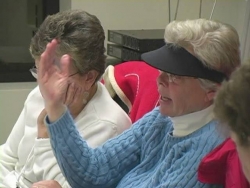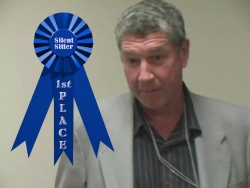At the February 23rd Round Table, a Membership Lot owner expressed concern about his prospects for being able to build on his lot in the future. The future that he had in mind: the year 2020. He had a question that is probably on the minds of many Membership Lot owners: “Is there any hope for me?”
LHCC President Wayne Poyer didn’t offer any promises and didn’t offer a lot of hope, but what he did offer came down to Rule 20, Aqua Virginia’s line extension policy. If, as Wayne Poyer described, Rule 20 is the source of salvation for Membership Lot owners, we thought it would be enlightening to review some of the history of LHCC’s treatment of Membership Lot owners and how this rule took shape.
There are a few facts that are important to understand utilities at Lake Holiday: the role of the SCC and the relationship between LHCC and LHEUC. Utilities in Virginia are regulated by the SCC, and utilities have tariffs approved by that Commission. These tariffs include both rates and rules, such as line extension policies. The SCC issues a certificate of public convenience and necessity to a utility. This certificate covers a specified area (often called the certificated area) and carries with it the obligation to serve all potential customers in that service area, subject to the line extension policy in the tariff. For LHEUC (and now for Aqua Virginia), that is the entire Lake Holiday community. LHCC owned 100% of the stock of the utility LHEUC. Under its Articles of Incorporation, LHCC was formed “to promote the…welfare of the members….” Logically, LHCC would be required to operate LHEUC to promote the welfare of members, which includes Membership Lot owners.
Some Lake Holiday critics of a utility’s contribution to a line extension make 2 false claims: that line extension credits (e. g., the old Rule 16 and now Rule 20 credits) would result in a “run on the bank,” and that the cost of the line extension work would raise utility rates. These critics exploit a lack of understanding of accounting and utility regulation to create fear of draining capital out of the Utility and higher rates. The truth is exactly the opposite of what line extension critics claim.
Line extensions provide utilities with new capital and they serve to help lower utility rates for existing homeowners. The Rule 16 credit was capped at an amount less than $3,000 per lot, and it is provided as a credit against the tap fee paid by the owner making the extension. Taps fees typically far exceed the amount of a line extension credit because the tap fee is intended to return capital to the utility for the investment required to build the system to which a new owner connects. In 2006, the tap fee was $8,868 and the Rule 16 credit was $2,861. Thus, every new line extension in 2006 would provide the utility with over $6,000 of fresh capital, less its cost to install the meter and finalize the connection.
In accounting terms, tap fee payments that come with line extensions are accounted for as a return of capital. For LHEUC, the return of capital would have boosted its interest income or helped lower its borrowing costs. With lower net expenses, LHEUC would have needed lower rates to operate. For Aqua Virginia, whose rates are set on a rate of return basis, the return of capital from a tap fee accompanying a line extension serves to lower Aqua Virginia’s investment. With a lower investment, the maximum profit that Aqua Virginia can earn is lower, and it is spread over 1 more rate-paying customer. These forces combine to lower homeowner utility rates, all other things being equal.
Up until the end of 2006, LHEUC’s line extension policy was embodied in Rule 16 of its tariff. Despite the fact that Rule 16 had been in effect for many years, it had been largely hidden from Membership Lot owners. Dave Ingegneri, the former GM of Lake Holiday, testified in a deposition that Chris Allison:
felt it was in the community’s best interest to not publicly announce Rule 16, but certainly, if somebody would request the information we would release it and certainly, Rule 16 is a public document, so if anybody really wanted to find the information they could.
In other words, the burden was on Membership Lot owners to discover Rule 16 completely on their own. But Chris Allison wanted to make that burden even harder. According to Dave Ingegneri, Chris Allison authored a document entitled Membership Lots and Water and Sewer Lots that was included in a number of disclosure packages to prospective buyers. The document falsely claimed that “LHEUC, the utility company, is not empowered by the SCC (VA State Utility Regulating Agency) to expand the current water and sewer infrastructure.” The truth is the exact opposite. LHEUC (and now Aqua VA) was obligated to extend the utility infrastructure in its certificated area, subject to its tariff.
Chris Allison is not the only LHCC leader that has acted against the interests of Membership Lot owners. Frank Heisey made false promises to Membership Lot owners and repeatedly failed to mention LHEUC’s Rule 16 obligations. In the February 2004 President’s Report, Frank Heisey wrote:
LHCC is responsible for expansion of the water and sewer system.
In January 2002, Frank Heisey replied to an email from a concerned Membership Lot owner. He wrote:
The issue with the future of membership lots is an issue of when and where we should extend water and sewer lines. We do not have the capital reserve to do this now based on all of the other issues facing us with the infrastructure….
Note that Frank Heisey was writing as the President of LHCC, and that he wrote “…when and where we should extend…” rather than “…if we should extend….” He wrote that LHCC didn’t have the money “now” rather than “we will never do that.” Tellingly, he didn’t breathe a word about LHEUC’s obligations under Rule 16, something that would have benefited this particular Membership Lot owner. Membership Lot owners were not seeking out Rule 16 precisely because the President of LHCC was telling them that LHCC was responsible for expansion and that LHCC would resolve the “when and where [it] should extend” once its finances improved.
As we previously discussed, in the 3 year period from 2004-2006, Membership Lot owners contributed about $1.4 million to LHCC. Much of this money was contributed because of representations from leaders like Frank Heisey.
But in a 2006 deposition, Frank Heisey discussed extending utilities to Membership Lots: “We had no plans for doing that.” Would Membership Lot owners have paid $1.4 million to LHCC if he had said “we have no plan and no obligation?” Did Frank Heisey make those representations because the money paid by Membership Lot owners was almost exclusively used for pay for benefits to homeowners like himself? To the best of our knowledge, not a single Membership Lot owner has ever made and completed a Rule 16 line extension request over more than 30 years. At least 1 of these owners so desperate for utility service would have pulled this off if LHCC had not concealed Rule 16 from them.
Former LHCC President Chris Allison described just what Rule 16 could mean to a Membership Lot owner in 2006. For a Membership Lot owner just 1 lot away from the end of the utility line, Rule 16 would mean that the Membership Lot owner was “probably not going to have to pay very much….” But to benefit from Rule 16, Membership Lot owners needed honest information about LHCC’s plans and LHEUC’s obligations. They never got it.
Our references to representations from LHCC about its obligation to extend utilities are not isolated. In 2003, Frank Heisey wrote LHEUC President Jack Fastnaught and the entire LHEUC board that he had legal advice that “LHCC is responsible for new lines….” In 2004 LHCC President Heisey and LHEUC President Chuck Brewer jointly wrote to every property owner that “We must expand the water and sewer system to meet the on-going growth and development in our community.” Discussions in public meetings often went far beyond broad-brush, general statements. At a May 2005 joint LHCC Board and Master Planning Task Force meeting, engineers from Patton Harris Rust Associates (PHRA) presented a project to extend utilities to 70 lots in Section 8A near Dogwood Drive and Mill Court. The project had a specific per lot cost estimate of $13,000, and the LHCC Board approved a motion to “facilitate the Dogwood Project.” Today, those lots sit just as they did in 2005 – without utilities.
By the end of that same year, prospects for Membership Lot owners would take a bad turn. In September 2005, we filed a lawsuit against both LHCC and LHEUC that focused attention on the line extension issue. A little more than a month later, LHCC signed contracts to sell LHEUC’s assets to Aqua Virginia. The deal was never put to a member vote. When Lake Holiday was under a court-ordered building moratorium and the Circuit Court was overseeing LHEUC’s affairs, then LHCC President Frank Heisey wrote to members that “selling of the utility company would require a 2/3 majority vote of the eligible membership. This in itself would not be a quick or easy process, nor should it.” The sales contract with Aqua Virginia was hurriedly signed on the eve of LHCC’s 2005 annual election of directors, after which Heisey would no longer be on the board. One representation to members while the Circuit Court was involved; an opposite action when that oversight was gone.
Despite the fact that LHCC already had a deal in place to get out of the utility business, about 2 weeks after signing that deal, its subsidiary LHEUC filed a rate and rule change request in which it attempted to remove any obligation to extend utilities to Membership Lots. Why was LHCC rushing to eliminate the Rule 16 obligation when it would soon be out of the utility business? Were its directors concerned that line extension issues were now part of a lawsuit, and LHEUC’s Rule 16 line extension obligation would now come to light?
Had LHCC bothered to make one, a quick check with the SCC would have revealed that a utility is obligated to serve new customers in the service area covered by its certificate. When asked in a deposition about the SCC’s response to LHEUC’s effort to eliminate Rule 16, Dave Ingegneri testified that “it [the SCC] would in no way approve that, those tariff sheets without Rule 16.” Whose idea was it to eliminate Rule 16? According to Ingegneri: “Chris Allison’s.” Ingegneri went on to describe where LHEUC’s own board had problems with the proposed tariff changes, but Chris Allison went to a Utility board meeting to offer a dictate:
the outcome or the, the [sic] dictate was, if you guys [the LHEUC board] don’t approve it the Association board will.
We collected and filed with the SCC over 450 complaints to fight LHEUC’s effort to increase rates and eliminate its line extension obligations. In just 3 weeks, the SCC ruled that LHEUC’s changes were “defective and should be given no effect.” LHCC had concealed the existence of Rule 16 from Membership Lot owners for years. When it attempted to eliminate any obligation to extend utility lines, it didn’t even bother to provide notice of its plan to these same owners. Instead, LHEUC apparently hid behind the notion that no notice of utility rule changes needed to be sent to Membership Lot owners since they were not Utility customers at the time. All of this is old news to our regular blog readers. We’ve written about LHCC’s shabby treatment of Membership Lot owners during the tariff change effort, and the SCC’s initial rejection of LHEUC’s rate and rule change. LHCC made 2 efforts to undo the SCC’s initial ruling, but the Commission let its ruling stand.
In February 2006, at the same time that the SCC was reviewing LHEUC’s rate and rule change request, LHCC, LHEUC, and Aqua filed a Joint Petition with the SCC to sell LHEUC’s assets to Aqua. It took the parties about 3 1/2 months from signing the contract to file their petition with the SCC. That petition contained a new line extension policy, or the proposed Rule 20. This new proposal was materially different from the previous tariff. Under Rule 16, LHEUC contributed 3 1/2 times the estimated annual utility revenue per Membership Lot, or about $2861. Under the proposed Rule 20, that contribution would drop all the way to $0.
In March of that year, we joined the utility transfer case (PUE-2006-00013) as a Respondent in that proceeding. We were the only Respondent to join the proceeding. Many Membership Lot owners purchased their lots 30 years ago, expecting to have a second home at Lake Holiday. Most own 1 lot that is of little value. With the passage of time and the high cost involved to understand the facts and participate in a utility transfer case against one of the largest water utilities in the entire country, most have given up. Some twist the fact that we were the sole respondent into a characterization of us as trying to block the utility sale. The truth is that we urged the SCC to not approve the transfer as it was proposed, which is lawyer-speak for saying we wanted certain provisions of the original deal changed. That is exactly what happened. After our testimony, the original line extension deal was changed dramatically.
In June, we filed testimony, largely complaining about the line extension policy that LHCC and Aqua proposed. We encouraged adoption of a line extension policy where Aqua Virginia would contribute 3 1/2 times estimated annual utility revenue to the cost of line extensions. We argued simply for continuing the in-force Rule 16, a requirement for the utility to make an investment in line extensions that had been in place for more than 30 years. In July LHCC and LHEUC responded. Chis Allison on behalf of LHCC and Mark Kropilak on behalf of Aqua filed 30 pages of testimony to argue against our proposal. To the question of Aqua’s willingness to contribute 3 1/2 times revenue, Kropilak had an answer: “No.” Chris Allison was spending legal dollars to reduce Aqua Virginia’s contribution to line extensions. Why? Since Aqua Virginia is unrelated to Chris Allison, why was he spending LHCC’s money in this manner?
By August, the SCC staff had reviewed our testimony and LHCC’s rebuttal, and SCC staff members filed their own testimony on the line extension issue that we raised.
Here’s what the SCC had to say:
The proposed main extension rule also forms the main argument, or at least one that squarely falls within the jurisdiction of this Commission, by the Respondent [Ogunquit] in this proceeding.
All water and wastewater utilities currently contribute three and half times the annual revenue per customer to the cost of a main extension.
Staff is concerned that Aqua’s rule differs radically from all other water and wastewater utilities regulated by the Commission.
LHCC, its subsidiary LHEUC, and Aqua Virginia proposed a line extension policy that “differs radically” from the policy for “all other” water utilities regulated by the SCC. The policy proposed was different from just about every other water/wastewater utility in the entire state of Virginia. That’s the policy that LHCC put forward to the SCC to serve Membership Lot owners, whose interests LHCC was allegedly serving. We, quite reasonably, opposed that policy.
Less than a month later, Aqua Virginia filed new testimony, adopting the position that both we and the SCC recommended. Aqua wrote:
We have now moved to a position, consistent with the Staff testimony, for Aqua Lake Holiday (under the general provisions of its main extension rule) to invest in the applicant’s main extension in the amount of 3 1/2 times the estimated annual revenues anticipated to be generated by the home to be constructed on the applicant’s lot. In addition, regarding the payments for intervening lot connections, the payment of these refunds will be extended to ten years from the original five years that was proposed. These changes will cause an increase in the investment needed from Aqua.
We appreciated the opportunity to present our ideas in a public forum and play a role in persuading Aqua Virginia to improve its line extension policy. The changes for which we argued applied not just to us, but to all Membership Lot owners equally. The SCC and its staff played a central role in making Aqua Virginia’s line extension policy more typical of the policies in place for other utilities. What’s clear is that, despite its obligation to promote the welfare of Membership Lot owners, LHCC played no role in improving the line extension policy. Instead, LHCC spent Membership Lot owners’ own money to come up with a bad plan and then paid lawyers to block our efforts to improve it.
Even with all of our references to testimony, the resolution of the line extension issue was very swift. Most testimony in the case was filed in electronic form with follow-up paper copies. Once Aqua Virginia agreed to make its line extension policy more like every other water/wastewater utility in Virginia, we supported these changes, and our further participation was limited to expressing this support. We did not contest any element of the SCC staff testimony, and we did not even appear at the hearing in Richmond. If we were seeking to block the utility sale, we would have done both things.
It took just a couple of days to reach an agreement to stipulate into the record our pre-filed testimony, and we were “excused from participation…,” all of which is discussed in the SCC’s November 2006 order granting the transfer. LHCC’s directors have managed to spin our successful but limited involvement in the transfer case into the false notion that we fought hard to block the transfer itself and lost. Wayne Poyer repeats this worn-out lie in the April 2008 President’s Report, where he describes our involvement in the transfer case as “legal obstacles thrown up (unsuccessfully) by a Member of the Association.” The sale of LHEUC’s assets was not approved by the SCC on the terms proposed by LHCC; it was approved on terms very similar to the terms that we recommended. Wayne Poyer needs to recheck his definition of “unsuccessful.”
In the fall of 2006, the Utility sale was moving toward closing by the end of the year. But Chris Allison remained as unsympathetic to the plight of Membership Lot owners as ever. After working to conceal the Rule 16 obligation, Chris Allison responded via certified mail to a Rule 16 extension request from an owner in Section 6A. A summary of his response: LHEUC will contribute its required $2,861.46. You just need to send in your check for $1,499,713.59. The property owner in Section 6A had been waiting years for utilities, perhaps over 30 years, and probably only recently learned of LHEUC’s obligations under Rule 16. For Chris Allison, who worked to conceal and remove those Rule 16 obligations, to waste the postage to send a letter requesting a deposit check for nearly $1.5 million is far beyond mean-spirited. It’s petty and callous.
Under Chris Allison’s leadership, LHCC wasted thousands of dollars fighting our recommendations before the SCC. Chris Allison discussed just how much money LHCC spent at a board meeting in March 2007. In our video Allison Attacks Masters, Chris Allison said that LHCC spent $200,000 on the SCC proceeding, and that one half of that – or $100,000 – was to fight our recommendations. He claimed that our recommendations amounted to “only 2 lines” in the final SCC ruling. In a final stab at Membership Lot owners, Chris Allison wasted $100,000 fighting to make Aqua Virginia’s line extension policy unlike every other water/wastewater utility in the state. Unsurprisingly, he lost. Instead of recognizing his error of fighting black letter law, he tried to make us the scapegoat by suggesting that our actions triggered legal spending.
The following table summarizes LHEUC’s old Rule 16, the proposed Rule 20, and the Rule 20 actually adopted by the SCC:
| # | Feature | Old Rule 16 | Proposed Rule 20 | Adopted Rule 20 |
|---|---|---|---|---|
| #1 | Credit to original applicant | 3.5 X avg annual utility revenue | $0 | 3.5 X avg annual utility revenue |
| #2 | Future credit for intervening lots that connect later | 3.5 X avg annual utility revenue | $1,000 | $2,000 |
| #3 | Expiration of credit for intervening lots | 10 years | 5 years | 10 years |
In the summer of 2007, LHCC made a hasty, ill-conceived effort to amend the deeds of dedication in 4 sections where most Membership Lots are located. That effort, called the Utility Extension Program (UEP) was a big flop. At the February 2008 Round Table Wayne Poyer told the concerned Membership Lot owner that:
the best minds in this community contributed to that and in fact authored it.
Really? We’re one of the largest owners of Membership Lots, and we were never contacted about helping to develop a utility extension plan. We’ve spoken to hundreds of other Membership Lot owners, and none of them were contacted either. It’s not credible that “the best minds in this community contributed” when most Membership Lot owners were never even contacted. In fact, the plan was crafted by LHCC’s Development Executive Committee (or DEC, discussed in our video Only 3 For The DEC, which at the time (and still, as of this writing) included no Membership Lot owners. It did, however, include Chris Allison.
During the debate over the UEP kickoff, Wayne Poyer said Membership Lots had “virtually no value” (predictably in our video clip Virtually No Value). LHCC concealed the existence of LHEUC’s Rule 16 from Membership Lot owners for years; it went so far as to deny its obligations. It tried to eliminate those obligations under that rule without sending any notice to these owners. When it came time to sell the Utility’s assets, LHCC jointly proposed a new line extension policy that required Aqua to make no contribution to the cost of line extensions, and then blocked our efforts to secure a larger contribution from Aqua. Five of LHCC’s current directors (Wayne Poyer, Dave Buermeyer, John Martel, Noel O’Brien, and Pat Shields) were on the board in 2006 that fought to block what became Rule 20. In fact, for all the importance Wayne Poyer now attaches to Rule 20, there’s no link to it anywhere on LHCC’s official website.
On February 23rd, Wayne Poyer described the plight of Membership Lot owners as a “sorry situation” and for the Section 6A owner on the video, he had a harsher outlook: “tough.” It’s time for LHCC to own up to its deplorable behavior of thoroughly obstructing Membership Lot owners’ efforts to get utilities.
LHCC’s directors have spent a lot of time and money to insure Membership Lots have “virtually no value.” They have drained hundreds of thousands of dollars from LHCC. Yet the hope for Membership Lot owners, according to Wayne Poyer, is in the Rule 20 protections that LHCC obstructed at every turn.
It’s time for Membership Lot owners to ask themselves a hard question: have LHCC’s directors lived up to their responsibilities to serve the interests of those property owners? The answer can be found in another question with a simple, objective answer: Does my lot, after more than 30 years, have utilities yet?
